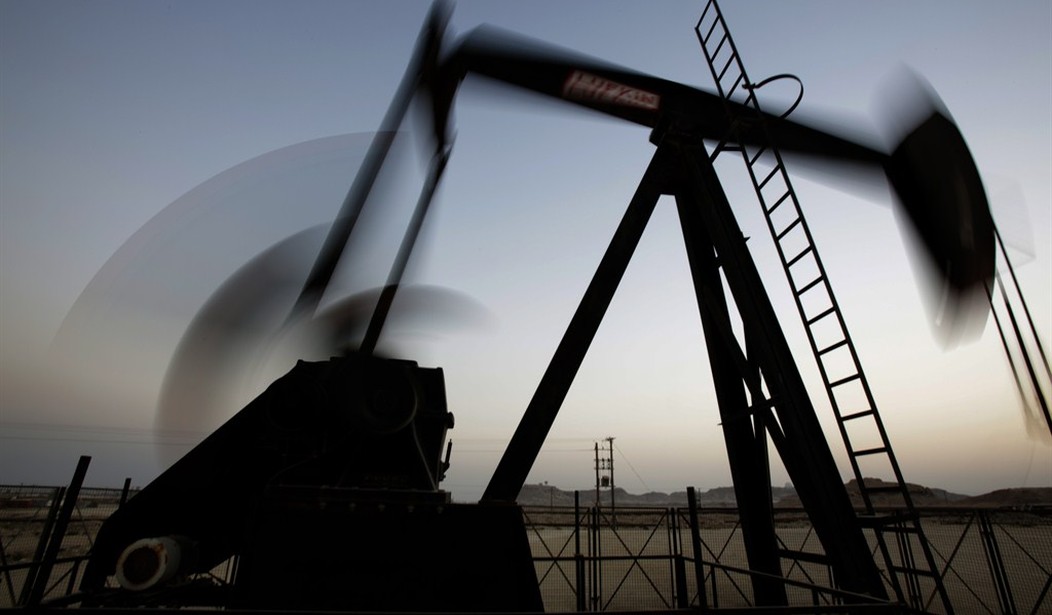Advertisement
This is a precipitous drop in oil prices, and it is having a dramatic and wide-ranging impact globally.
Why have oil prices dropped so far, so fast?
Primarily three reasons, according to energy expert Daniel Yergin:
1 - The rapid increase in U.S. oil production, which is up 80 percent since 2008, almost entirely due to hydraulic fracturing.
2 - Libya's political stabilization is resulting in a return to its 1 million barrel per day production, up from 200,000 barrels per day in May.
3 - The weak demand in Europe as a result of its soft economy.
Faced with low oil prices, the Organization of Petroleum Exporting Countries met over Thanksgiving to make a tough decision: Cut supply and stabilize oil prices - thereby helping their own oil-dependent economies - or keep production where it is and help push oil prices lower, in an attempt to make fracking operations in the United States unprofitable. They chose the latter.
OPEC believes that if oil prices drop to around $50 a barrel, much of the fracking operations in the U.S. and Canada will cease, as they will not be financially feasible.
This is a risky bet.
As Ambrose Evans-Pritchard wrote recently in The (U.K.) Telegraph, "Saudi Arabia and the core OPEC states are taking an immense political gamble by letting crude oil prices crash to $66 a barrel, if their aim is to shake out the weakest shale producers in the U.S. A deep slump in prices might equally heighten geostrategic turmoil across the broader Middle East and boomerang against the Gulf's petro-sheikdoms before it inflicts a knockout blow on U.S. rivals."
Recommended
Advertisement
What is the effect of lower oil prices?
Low oil prices are injecting an economic boost in European countries with weak economies, as the energy costs for businesses and consumers are lower.They're also starving the petro states, like Venezuela and Russia, whose economies rely on windfalls from higher oil prices.
Here in the United States, the most profound effect is that lower oil prices mean lower gasoline prices.
According to GasBuddy.com, by the middle of last week, the average per gallon price for gasoline in Texas was $2.42, with Lubbock offering the second-lowest average in the country of $2.27. Nationwide, the average is $2.64. One year ago, the average was $3.26.
The U.S. Department of Energy now predicts that gas prices will average $2.60 for all of 2015. This will save drivers $100 billion next year, an average of $1,100 in a year for the average family. Consumers will spend this unexpected savings on vacations and Christmas gifts, and the U.S. economy should benefit in the short-term.
But it is important to understand why U.S. production is up - and why it isn't.
A Democratic operative in Austin last week said, "You can thank President Obama for these low gas prices."
This is a stunningly idiotic statement.
First, oil is a global commodity, and the price of oil is set by the market. Gas prices are driven by the price of oil.
Advertisement
Second, the president of the United States is limited in his ability to directly impact gas prices.
Third, the increase in U.S. oil production is entirely on state and private lands, in areas where the federal government cannot block development. Federal lands are almost completely closed to fracking.
President Obama could help the U.S. become even more energy independent by opening up federal lands for responsible drilling, beginning with the Arctic National Wildlife Refuge, which a majority of Alaskans support.
But even after five years of study and with the State Department announcing that it would not harm the environment, we still cannot get the Keystone Pipeline built.
In the current situation, three things are true: The U.S. energy revolution is happening in spite of President Obama, oil prices are down due to global factors and this is good news for American consumers.

























Join the conversation as a VIP Member